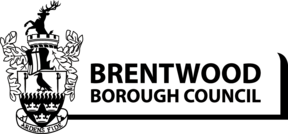Food Safety Officers are concerned that food in the Brentwood Borough is safe and fit to eat.
As part of the process of ensuring this, a proactive programme of unannounced visits to food premises is carried out. This includes manufacturers, shops, cafes, restaurants, pubs, canteens, take-aways, home caterers and mobile food vans. Evening visits are also carried out where appropriate.
Food premises are rated according to a risk assessment and this helps to determine the frequency of inspections. You can view further information about inspection regime and the rating form here to see the factors that are taken into account.
Food hygiene inspections
Businesses that produce or prepare food for the public are inspected to make sure that the food is safe to eat and the description of the food doesn’t mislead the customer.
These inspections enforce the Food Safety Act 1990 and the regulations made under it.
Environmental Health Officers from Brentwood Borough Council and Trading Standards Officers employed by Essex County Council will come to inspect your business. In general, Environmental Health Officers check on food hygiene and Trading Standards Officers look at food standards such as composition (what food contains) and labelling.
For information on Trading Standards, visit Essex County Council Trading Standards.
The inspectors might come on a routine inspection or they might visit because of a complaint. How often the inspectors routinely inspect your business depends on the type of business and its previous record. Some premises might be inspected at least every six months, others much less often.
Environmental Health Officers and Trading Standards Officers have the right to enter and inspect food premises at all reasonable hours. They don't have to make an appointment and will usually come without notice.
The inspectors will look at how you operate your business, to identify potential hazards and make sure your business is following the law.
When the inspectors visit, they must follow the Food Standards Agency’s Framework Agreement on local authority food law enforcement and relevant Food Safety Act Codes of Practice. The Framework Agreement sets standards for how local authorities carry out their enforcement duties, which you can read at Food Standards Agency.
The inspectors should show you identification when they arrive and be polite throughout the visit. They should always give you feedback on an inspection. This means they will tell you about any hazards they have identified and advise you about how they can be avoided.
If inspectors advise you to do something, they must tell you whether you need to do it to comply with the law or whether it would simply be good practice.
If you're asked to take any action as a result of the inspection, you must be given the reasons in writing. If the inspectors decide that you're breaking a law, they must tell you what that law is.
The inspectors should give you a reasonable amount of time to make changes, except where there is an immediate risk to public health. They must also tell you how you can appeal against their actions.
When they think it's necessary, inspectors can take enforcement action to protect the public. For example, they can:
- take samples and photographs of food and inspect your records
- write to you informally, asking you to put right any problems
- serve you with an improvement notice if you're breaking the law, which sets out certain things that you must do to comply
- detail or seize suspect foods
- serve an emergency prohibition notice which forbids the use of premises or equipment (this notice must be confirmed by a court)
- recommend a prosecution in serious cases
If a prosecution is successful, the court may prohibit you from using certain processes, premises or equipment, or you could be banned from managing a food business. It could also lead to a fine or imprisonment.
If you don't agree with action taken by an inspector, you should contact the inspector’s line manager to see if the problem can be resolved through talking or writing letters. If you still disagree after that, you could approach your local councillor.
If you think your local authority is applying the law in a different way from other authorities, you can seek advice from the Local Authorities Co-ordinating Body on Food and Regulatory Standards (LACORS).
You can appeal to the magistrates’ court about an improvement notice or your local authority’s decision not to lift an emergency prohibition order. When there is a ban on an individual, this can only be lifted by the court.
When inspectors impose an emergency prohibition notice on premises, a process or a piece of equipment, they must apply to the court for confirmation within a specified period of time.
Food that has been seized by an inspector can only be condemned as unfit for human consumption on the authority of a Justice of the Peace. You can attend the court hearing if you want to. If the court decides that premises have been shut without proper reason or food has been wrongly seized or detained, you have a right to compensation.
The Environmental Health team can advise you about food hygiene; please contact Brentwood Borough Council on 01277 312500 and ask for the Environmental Health Food Safety Team. Trade associations and independent consultancy services might also be able to help.
For more information about food law and good practice, visit the Food Agency.
View the Food premises risk assessment rating form (PDF).
As part of the inspection process, information is provided to businesses to help them comply with the regulations. If you would like more information, call Environmental Health on 01277 312500.
